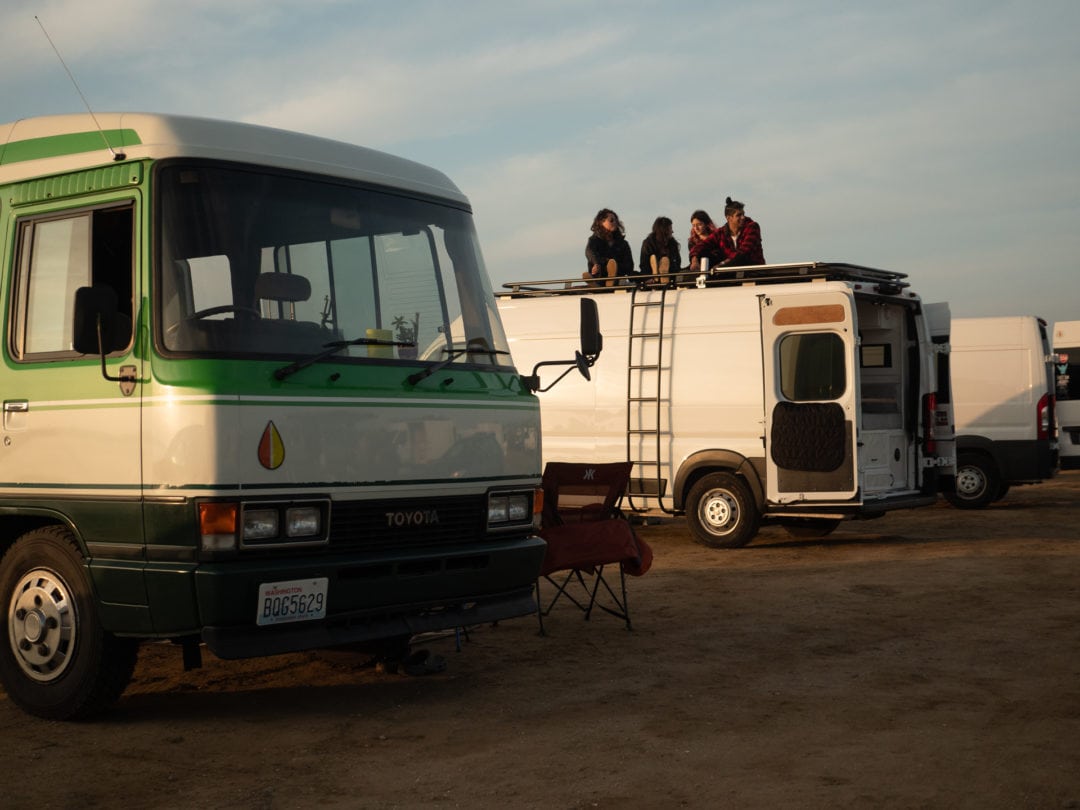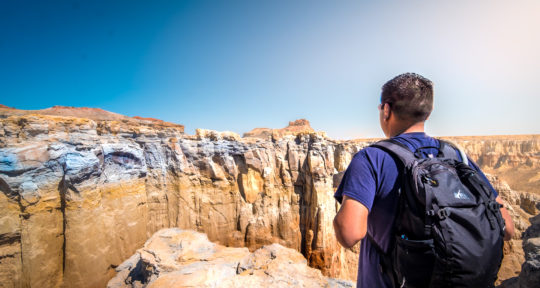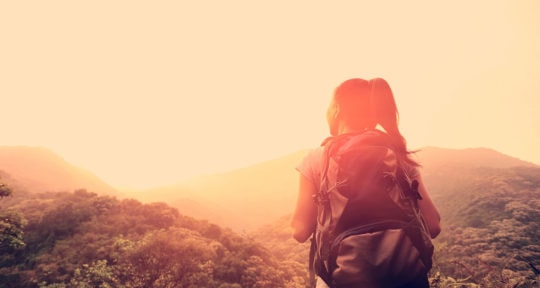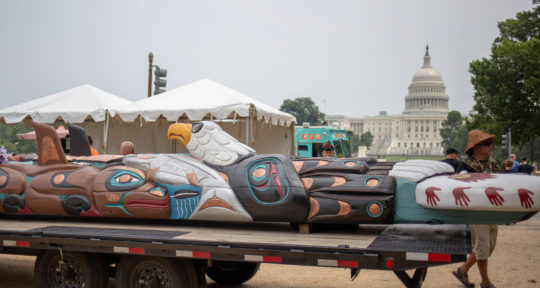Diversify Vanlife is an organization that aims to uplift historically marginalized and underrepresented people in the vanlife, travel, and outdoor space. Indigenous people, the original stewards and inhabitants of the lands, have been historically misrepresented and faced attempted erasure of their cultures, histories, and people. They are still here, and deserve to have their voices and perspectives amplified and supported.
November is Indigenous Heritage Month, and Diversify Vanlife wants to contribute to, honor, and celebrate it by sharing one of their Native community members’ personal tips and resources on how we can respect Indigenous lands, educate ourselves about Indigenous peoples and organizations, and support local Native communities while traveling.

My name is Aminah Sane’ Ghaffar. I am also called Ya Wapitnu or Star Woman. My preferred pronouns are she/her/hers. I am a member of the Lumbee Tribe of North Carolina, and I also identify as Afro-Indigenous. My mother is Lumbee and my father is Black.
Travelers and campers should acknowledge the true history of the lands they are visiting or living on. It’s the responsibility of all settlers to be mindful of their continued occupation of Indigenous lands as an act of solidarity with Indigenous sovereignty.
Sovereignty is defined as autonomy and denotes a nation-to-nation relationship with neighboring countries. Indigenous nations in the U.S. have been granted tribal sovereignty through treaties, and these treaties continue to be dishonored. Travelers and campers have the opportunity to acknowledge the history of many Indigenous nations as they move from space to space.
Here are some tips for respecting Indigenous lands:
1. Treat the land as your relative, and as an extension of your being
We are all living in relation to the lands around us. Mother Earth nurtures us, and colonization has removed the respect for our Earth Mother through over-extraction of resources.
2. Be mindful of the animal relatives who live in these areas
I’ve seen too many videos of people at campsites approaching dangerous animals, including bears. This is dangerous because any animal that is territorial or afraid will attack. We need to do a better job of living respectfully alongside other beings who occupy lands.
3. Find out if there are any tribal communities near your campsite.
Get to know the people who continue to live in the area and research which historical tribes occupied these spaces. Support Indigenous artists and vendors in the areas you visit. You can use the Native Land app to find out whose lands you are on.
4. Be mindful of the loss some Native people may feel
Land connection can be complex for some members of tribal communities who experienced forced removal from their ancestral homelands during events such as the Trail of Tears or the Long Walk. We have all done our best to adapt from what we have lost to colonization. However, this does not mean that Native people want pity. We are fighting ongoing colonization and you can assist us by holding our government accountable to abide by treaty obligations and reconciliation efforts.
5. Visit tribal nation websites to learn more about Native nations
We are not monolithic, and our nations are dynamic and contemporary entities. The best way to learn about issues in specific communities is to talk to the people on the ground doing grassroots work.

You can visit the following websites to learn about what these organizations are doing to solve issues like tribal sovereignty, Missing and Murdered Indigenous Women (MMIW), food sovereignty, food security, and healing from historical trauma: U.S. Department of the Interior Indian Affairs; National Congress of American Indians; Urban Indian Health Institute; IllumiNative; Native Organizers Alliance; National Indigenous Women’s Resource Center; MMIW NC Coalition; The National Boarding School Healing Coalition; Alliance of Native Seedkeepers; Dream of Wild Health; and The Sioux Chef.
Indigenous grassroots activists have built a number of organizations that would benefit from the support of travelers and campers. As you visit a site, find one of these organizations (including others not listed here) and donate to support their causes.
Take your allyship a step further by sharing information with others about these causes, and attend marches and gatherings to learn more about actions you can take. Pay attention to legislation being introduced about Indigenous issues, and hold your elected officials accountable.
You can support Aminah’s writing by subscribing to her blog goodmedicinewoman.com and following her on Instagram @good_medicinewoman.








